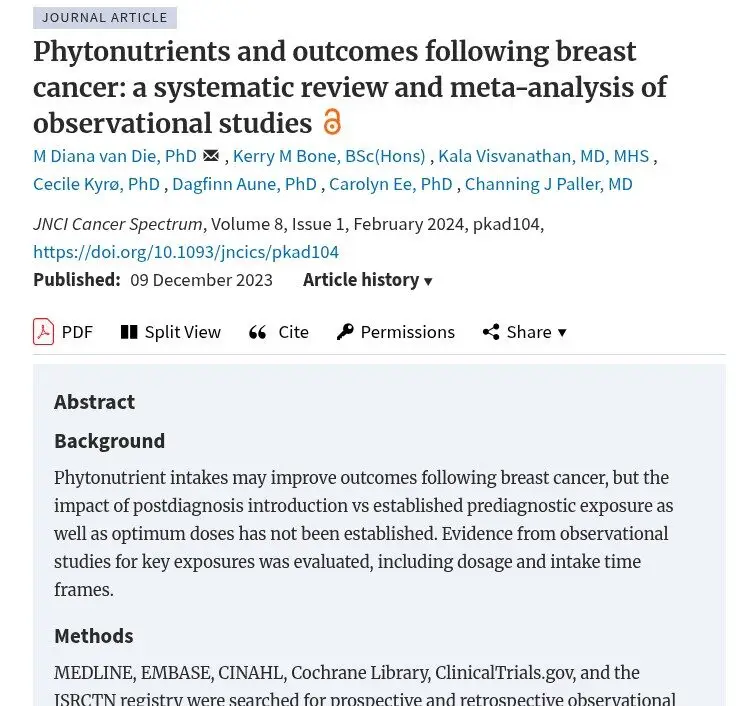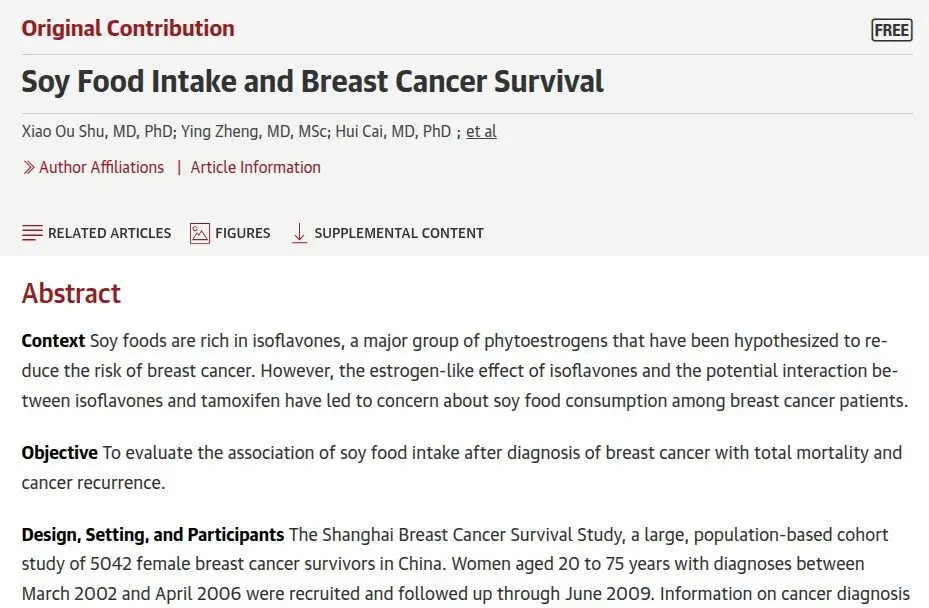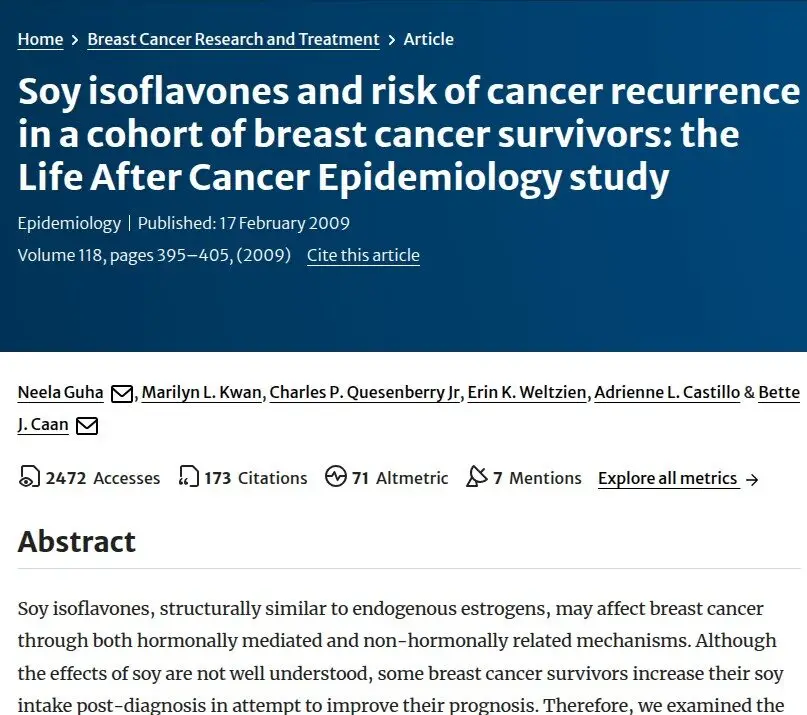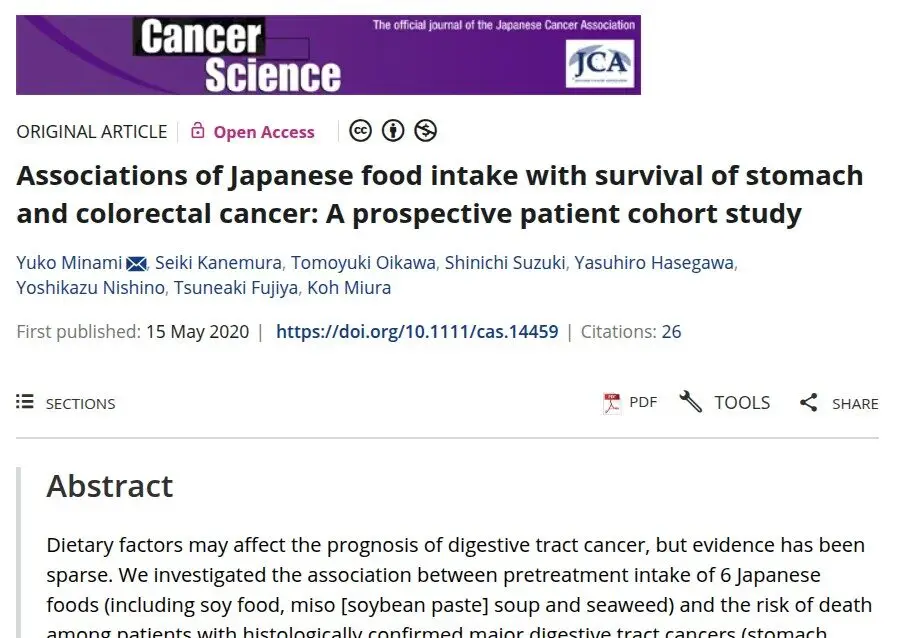Soy isoflavones were associated with a 26% reduced risk of recurrence (HR = 0.74) [Hazard Ratio], particularly among postmenopausal (HR = 0.72) and estrogen receptor–positive survivors (HR = 0.82, 95% CI = 0.70 to 0.97), with the greatest risk reduction at 60 mg/day. In mortality outcomes, the reduction was mostly at 20 to 40 mg/day…An inverse association was observed for serum or plasma enterolactone, measured prediagnosis and early postdiagnosis, with cancer-spec...
The form creates your own page where you can describe your plan and upload details of supplements, functional foods and anything else you like to include
UPDATE an existing plan using the form below this one
ALWAYS ANONYMOUS
UPDATES : Select the name of your plan below (“select post”)
Make any changes you want including uploading new files. These will replace your earlier entries.
In case of any issue just reach out using our contact form






